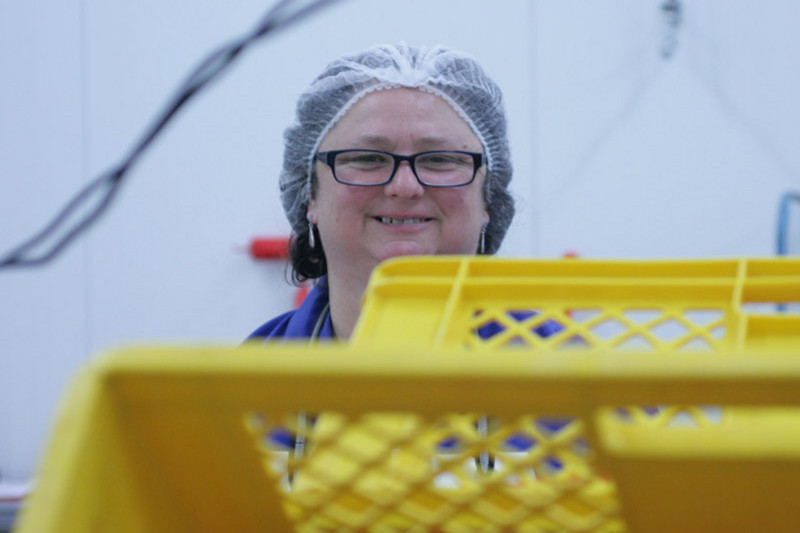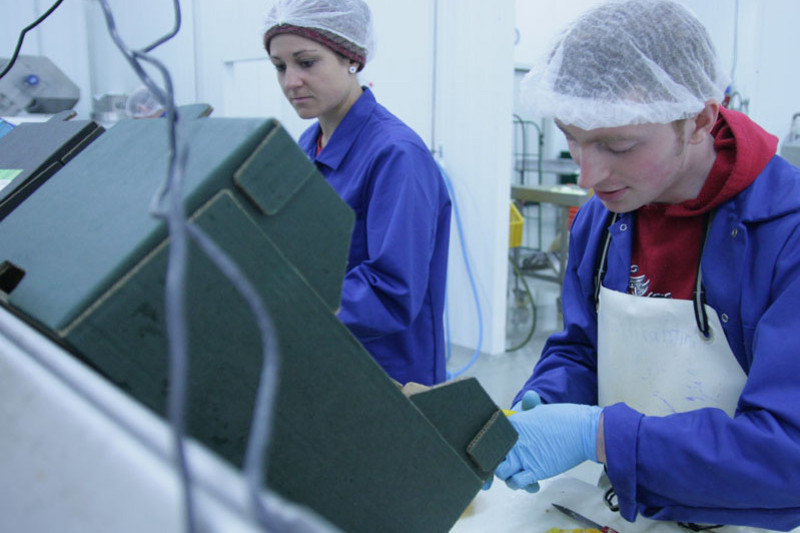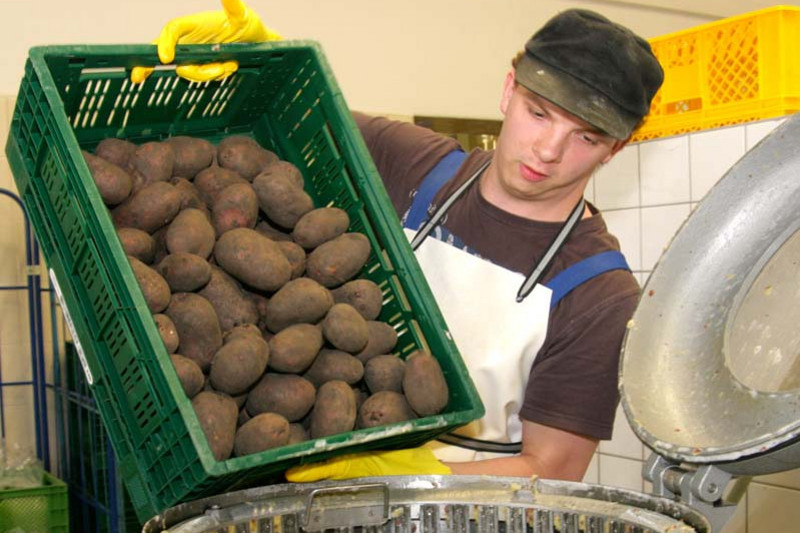Focusing on Skills, Not Disabilities: Regenbogen Arbeit Promotes Inclusion in the Workplace
Integrating people with mental illnesses into the daily working world and thus into society: this is the goal of Regenbogen Arbeit – “Rainbow Work” – a non-profit organization that manages a total of eleven integrated workplaces in the Munich area. Recently the fresh foods operation moved to a larger and better-equipped facility in order to further develop the business and increase the competitiveness of the organically-oriented service provider.
“No one shall be disadvantaged on the basis of a disability” - this provision, found in article 3 of the German Basic Constitutional Law, is still far from universally upheld in working world. Due to their limitations, people with mental illnesses have a difficult time gaining employment. Appropriate supervision and support are necessary so that they can put their skills to use in a meaningful way. When this is successful, regular and long-term structures enable not only participation in work life, and hence also financial independence - the effect can also be stabilizing for the individual.
Overcoming Prejudice, Increasing Personal Interaction
“The topic of mental illness is burdened with many anxieties and taboos,” says Elke Seyband, the director of Regenbogen Arbeit GmbH. “There are many prejudices and a large need for education. We are convinced that daily interaction is the best way for us to ensure that people with mental illness are visible and accepted in society.” That's why, for over 25 years, the organization has believed in the power of integration. Since 1989, the company has offered various positions in the catering sector and in the disposal industry in eleven operations in and around Munich to people with mental disabilities. These fields of activity were developed to fit to the special needs of these individuals. Today, Regenbogen Arbeit employs around 170 employees. Around two-thirds of these are individuals with mental illnesses, and many also suffer from addiction or from other health or social problems.
One of these operations is Regenbogen Fresh Foods. Here, around 30 employees prepare ready-to-cook, cleaned and cut vegetables and salads for several cafeterias and a wholesaler. Currently the proportion of organic foods is around 70 percent, but there are plans to increase this to 100 percent in the medium-term. But the competition in the food services industry is stiff: price pressure is high, and supporting the employees means considerable extra work. Unlike workplaces for people with disabilities, Regenbogen Arbeit pays wages adjusted for local rates, and all employees have social insurance. “It is important to us to compete with the competitors in the general market. This is the only way we have a chance to have a public presence and to bring our inclusive model to society,” says Elke Seyband. To remain competitive, Regenbogen's fresh foods operation invested in new facilities and machines with the help of the Software AG Foundation. Thanks to the improved facilities and equipment, the operation was able to increase production and significantly increase delivery quantities. This not only secures the existing jobs in the company, it also increases the prospects that more positions can be created.
Work that Matches the Individual
“We ask ourselves whether and how the work matches the individual, and not, as usual, the other way around: matching the individual to the work,” emphasizes Elke Seyband. That's why the company is attentive to individual skills, but also to individual limits and limitations - and allows for freedom for employees to develop and explore their abilities and productivity. “For me it's extremely important to have something to do,” one employee reported. “If I no longer had this, I would probably stay at home and vegetate. Or I would be in a clinic. I want to be independent, but that is also a problem. When my performance is bad, it's important that the boss cuts me some slack. Hey, nothing is perfect!”
“I couldn't keep a job more than a few months - I couldn't stick with anything,” explained one employee who used drugs for many years. “I am very happy that I now have a crisis-proof job at Regenbogen. I know that I can do this job. I don't want my children to be ashamed of me. I want them to be proud of me. That's why a permanent job is important!” For employees with mental illness, the direct, everyday interactions with customers and guests are a great challenge - and at the same time, it is an important part of their participation in society. “Here we don't focus on your disabilities, we focus on your skills!” says Elke Seyband. She hopes that the organization's model will encourage other, non-integrated operations to create specially-designed positions or integrated departments. The Software AG Foundation is enthusiastic about the Munich company's concept. “It's impressive to see Regenbogen's commitment to creating permanent jobs for people with mental illnesses, and the wide spectrum of jobs they design,” says project manager Konrad Lampart. “As a foundation, we are happy to be able to support this impetus towards an inclusive society. The relocation of the fresh food processing has been an important and logical step in further improving the competitiveness of this exemplary operation.”



